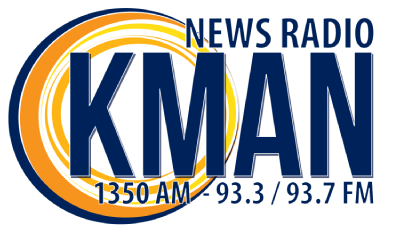K-State’s Institute for Civil Discourse and Democracy and the 4-H Department of Youth Development partnered to host the 4-H Community Conversations Youth Citizen Open Forum at the Staley School of Leadership Saturday.
The four-hour event featured trained moderators facilitating conversations among groups of high school and middle school students about a topic predetermined by youth involved in 4-H.
Participants were to explore different approaches to solving the predetermined issue, which was gun violence, and then gather at the end of the forum to discuss ways in which they could create positive change, or a call-to-action.
“There was a lot of discussion about assault weapons, how we define them, what it would mean to have to reload a gun as opposed to an assault weapon where you could shoot 100 or 500 rounds and never have to reload,” Aliah Mestrovich Seay, an instructor in leadership studies at K-State and an extension specialist for K-State’s 4-H Department for Youth Development, said.
During the call-to-action phase of the forum, many routes were discussed, but taking on mental illness seemed to be one of the more popular approaches.
“There was a lot of talk about mental illness, increasing awareness about mental illness and prevention and also looking at different rules and regulations for individuals who may have mental illness and their access to weapons,” Mestrovich Seay said.
A key part of these discussions was the work done by the facilitators to help create environment where the participants felt comfortable enough to share their opinions.
One facilitator was Rylie Volkman, a freshman in agricultural education at K-State who has been involved with 4-H since she was in third grade.
“As a facilitator, it’s your job to make them feel as comfortable as they can, ask questions, get them to open up,” Volkman said. “Because our overall goal is to seek that understanding and to find that common ground and we can’t do that unless everyone is participating.”
One of the goals of the event was to further the 4-H program’s goal of improving the ability of members to speak publicly about issues.
“Part of our historical impact in young people’s lives who’ve been a part of our K-State Research and Extension program, 4-H Youth Development, has always been about helping equip young people to speak well, speak well in front of others and speak well about issues,” Wade Weber, the head of the K-State 4-H Department for Youth Development and the leader of the Kansas 4-H program, said.
The event also served as a way of showing how freedom of speech and civil discourse can be used to create positive change.
“If youth can practice it, shouldn’t we as adults be able to practice it as well?” Mestrovich Seay said. “It’s also a fundamental right, freedom of speech, that we rarely exercise, to participate in a deliberative forum and take four hours on a Saturday to be able to do something like this. So, I think it’s at the heart of our democracy.”
Mestrovich Seay also says that not only should this right be exercised, but Americans need to rethink their overall approach to discussing issues.
“We, as Americans, need to have a code of ethics and a framework that informs our speech which includes compassion and actively listening to one another because at the end of the day, the way we are behaving right now does not really allow anyone to move forward together,” Mestrovich Seay said. “We’re actually just grinding our teeth, sticking with our own viewpoint and nothing is changing and there’s nothing that’s actually transforming.”
Stephen Johnson, a member of the Kansas House of Representatives who was there to observe how 4-H was working on the need for civil discourse and is happy to see them taking on difficult contemporary issues, says disagreement can be of great value when taking on societal issues.
“It’s where we disagree that someone can help me get to a higher level,” Johnson said. “If somebody just agrees with everything I think, I’m in the same rut that I’m in, which may or may not be bad. But it’s embracing those disagreements and trying to figure out how we can collectively do better.”
For more information about K-State’s Department for 4-H Youth Development, visit kansas4-h.org.


